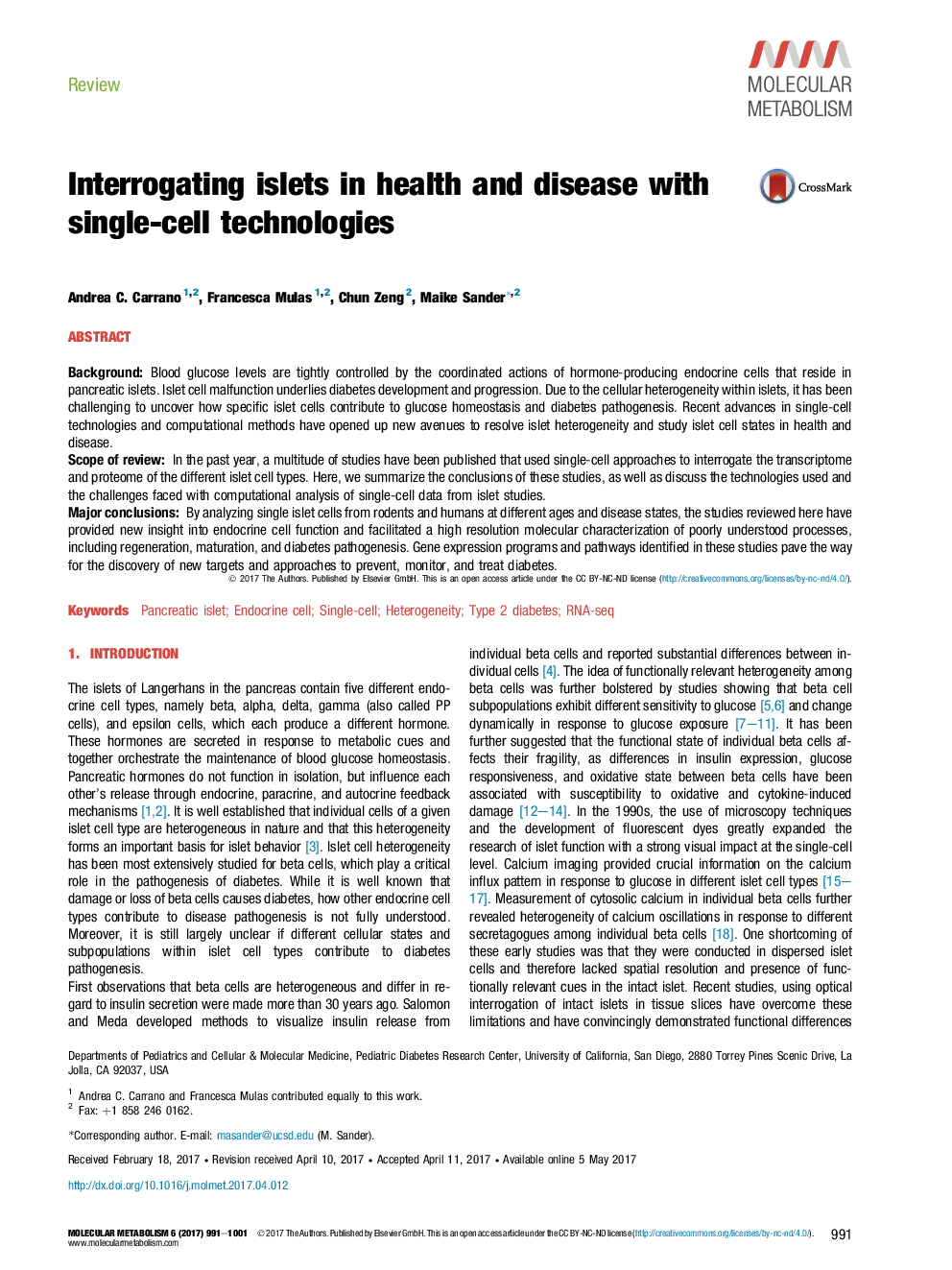| Article ID | Journal | Published Year | Pages | File Type |
|---|---|---|---|---|
| 5618660 | Molecular Metabolism | 2017 | 11 Pages |
BackgroundBlood glucose levels are tightly controlled by the coordinated actions of hormone-producing endocrine cells that reside in pancreatic islets. Islet cell malfunction underlies diabetes development and progression. Due to the cellular heterogeneity within islets, it has been challenging to uncover how specific islet cells contribute to glucose homeostasis and diabetes pathogenesis. Recent advances in single-cell technologies and computational methods have opened up new avenues to resolve islet heterogeneity and study islet cell states in health and disease.Scope of reviewIn the past year, a multitude of studies have been published that used single-cell approaches to interrogate the transcriptome and proteome of the different islet cell types. Here, we summarize the conclusions of these studies, as well as discuss the technologies used and the challenges faced with computational analysis of single-cell data from islet studies.Major conclusionsBy analyzing single islet cells from rodents and humans at different ages and disease states, the studies reviewed here have provided new insight into endocrine cell function and facilitated a high resolution molecular characterization of poorly understood processes, including regeneration, maturation, and diabetes pathogenesis. Gene expression programs and pathways identified in these studies pave the way for the discovery of new targets and approaches to prevent, monitor, and treat diabetes.
